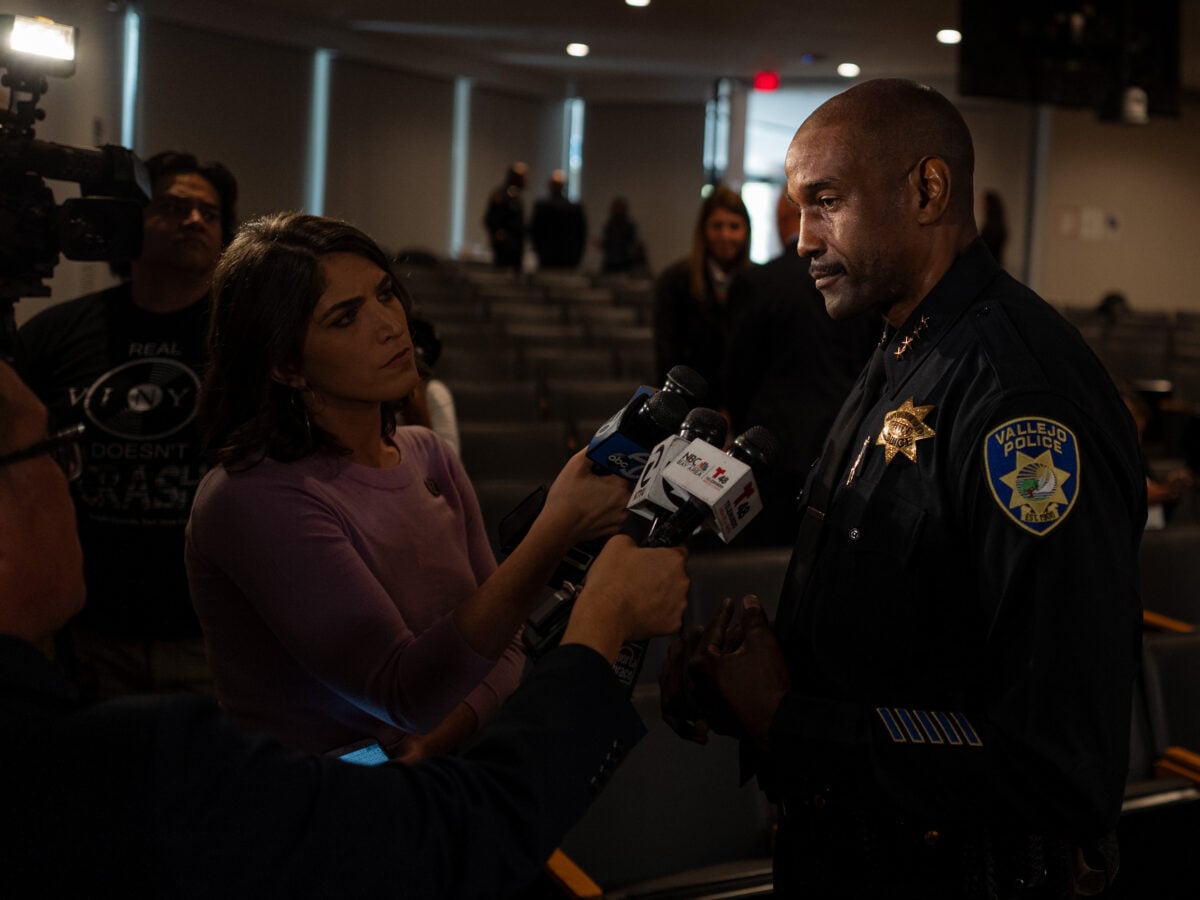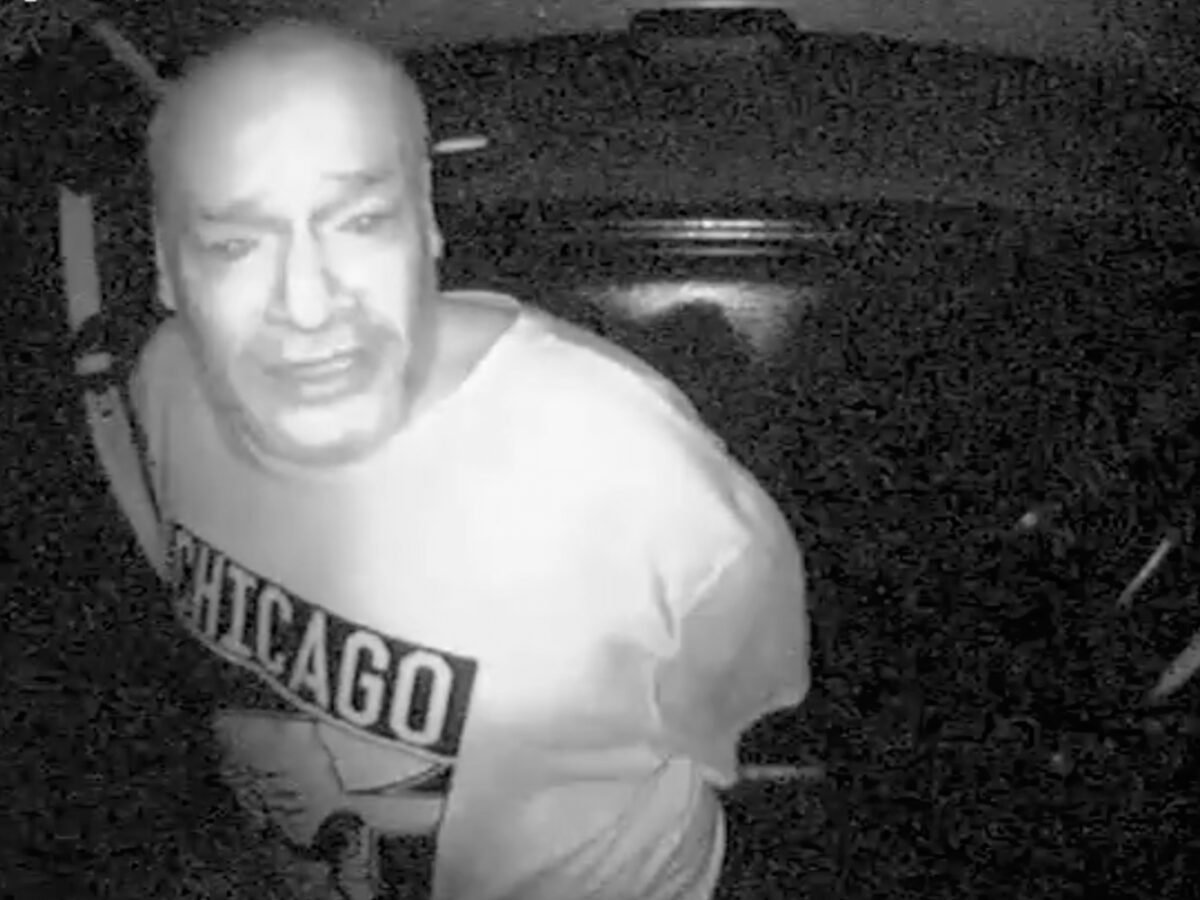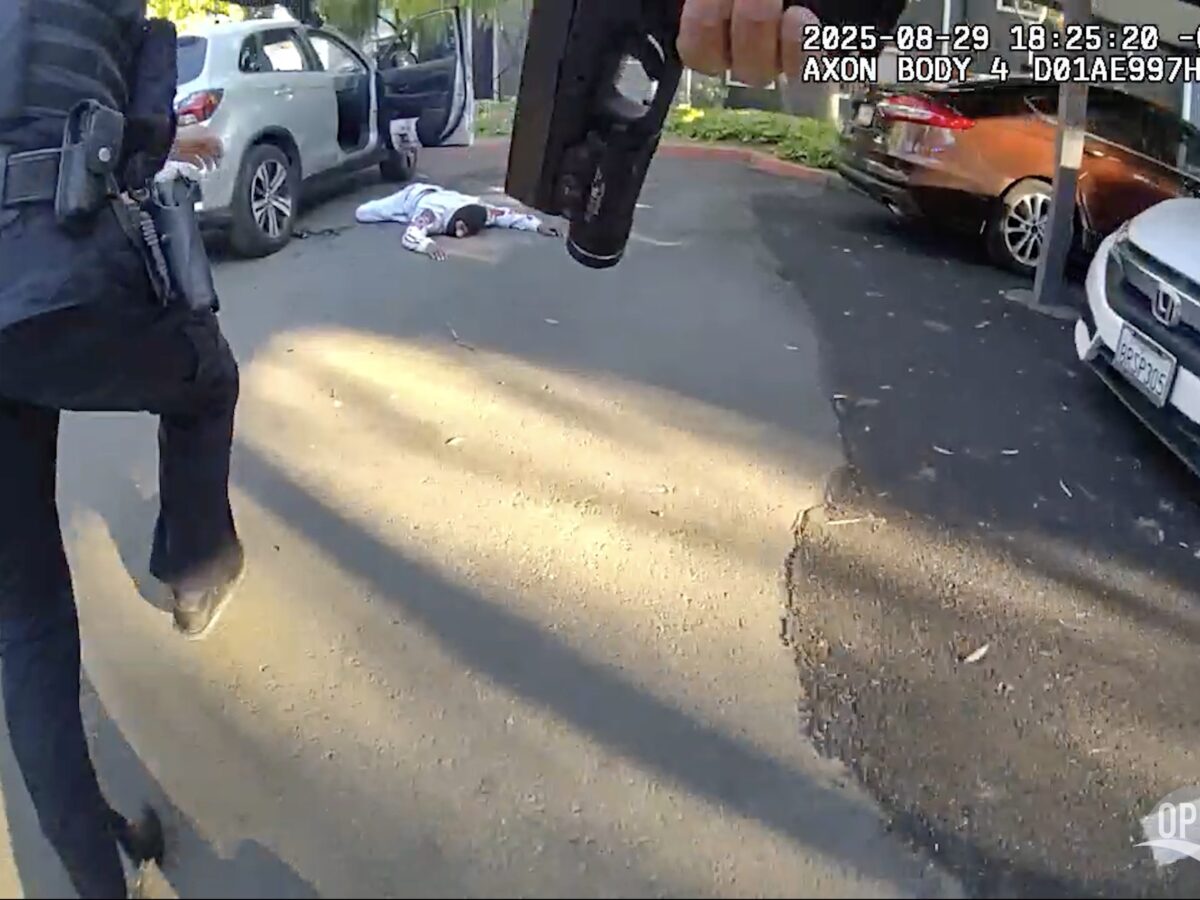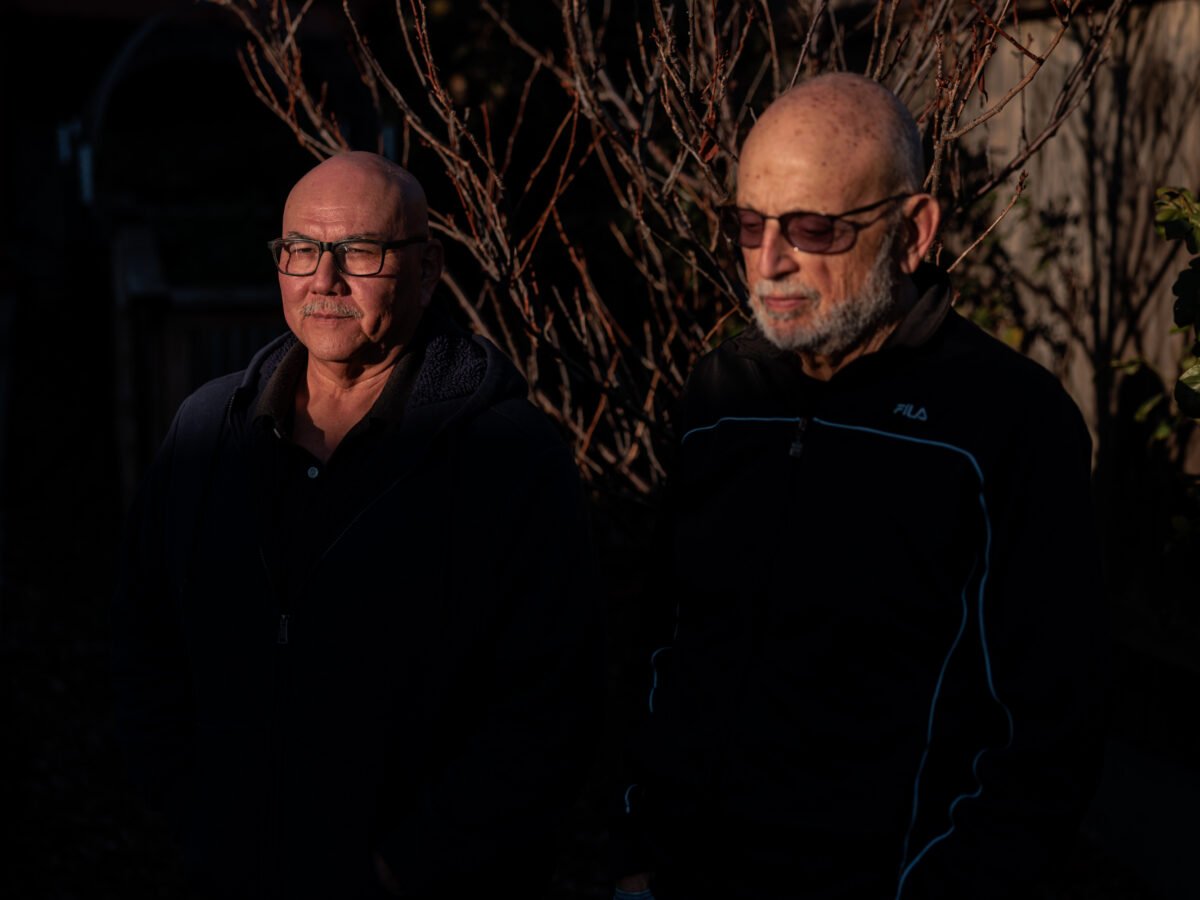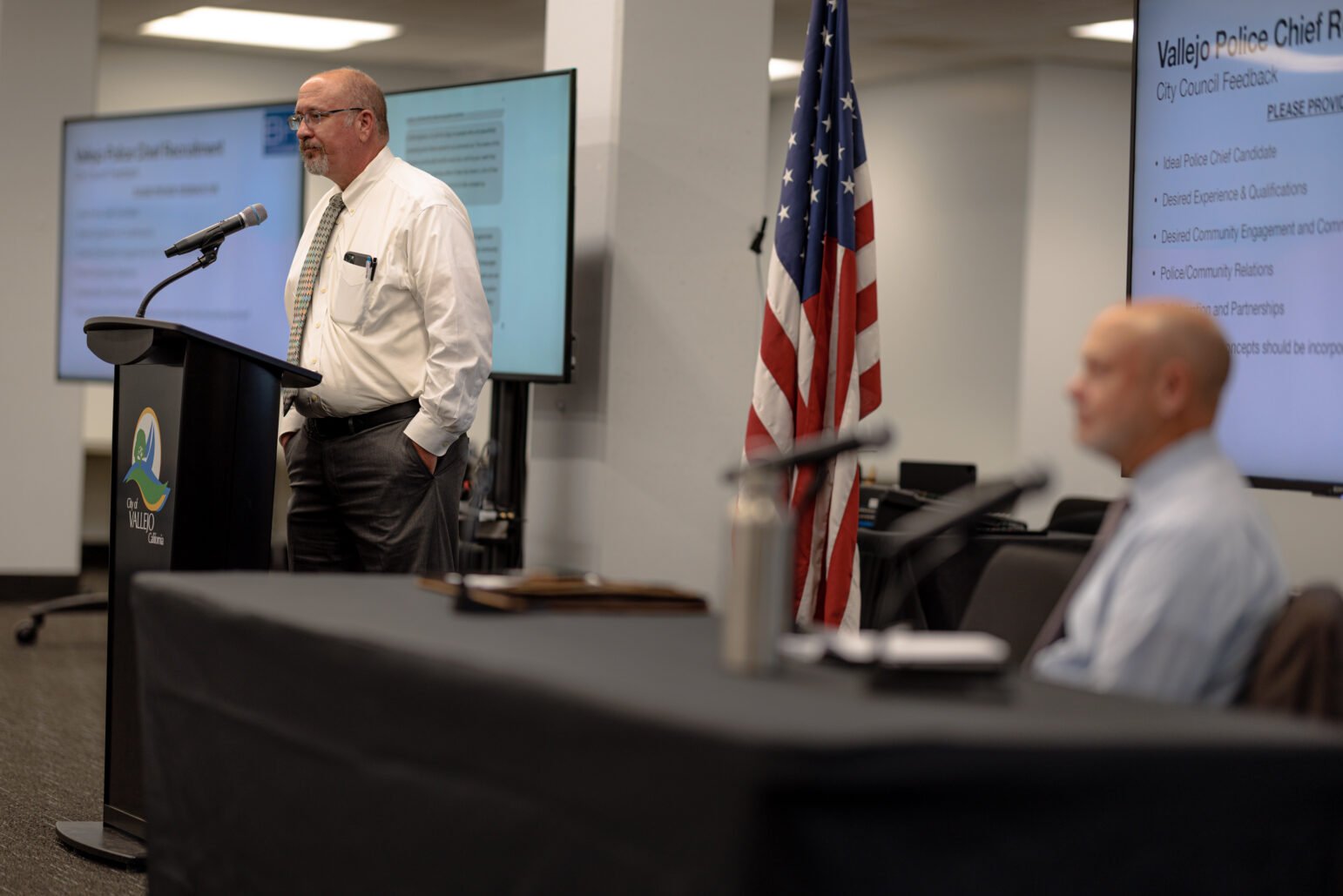
A community member who last week interviewed candidates for Vallejo’s next police chief has raised concerns with city leaders about a lack of representation and equity in the process, records obtained by Open Vallejo show.
Jasmine Salmeron, a Vallejo resident and member of the community interview panel, told Open Vallejo that her panel included no residents from District 2 or the Black community. Salmeron raised the issue in an email to City Manager Andrew Murray, who declined her request for an in-person meeting, according to public records.
“For the black community to not have a seat at this particular table is a disgrace,” Salmeron wrote in the email. “By not having a community panel representative of Vallejo’s true demographics, we all missed out on the opportunity to learn from [District] 2 and the black community.”
Vallejo’s mayor and city council members each selected a representative from their district to sit on the community panel. Two additional panels made up of law enforcement professionals and city staff also interviewed the candidates last Friday at Cal Maritime’s event center in downtown Vallejo, records show.
Panelists asked predetermined questions of all six candidates before ranking their choices and sharing feedback with Murray, according to sources with knowledge of the matter, who spoke on the condition of anonymity because they were not authorized to discuss the proceedings. Murray will now narrow the pool according to panelists’ rankings and interview the finalists, according to the city.
Salmeron urged Murray and H.R. director Stephanie Sifuentes to take steps to include District 2 and Black residents “before a final selection is made,” according to the email exchange.
“We missed an opportunity to hear from a certain group, and that is critical based on the history of our police department,” Salmeron told Open Vallejo.
Murray said in an email to Open Vallejo Friday that he remains confident the process will identify a successful leader. The panelist from District 2 did not show up on the morning of the interviews, according to Murray, and city staff tried unsuccessfully to reach the person.
“There was not sufficient time to notify the alternate for District 2 prior to the commencement of the oral examinations,” Murray said. “Although this is unfortunate, the recruitment process has provided everyone in the community an opportunity to share their thoughts on the skills, traits, and experience that they believe the permanent Chief should have.”
In recent months, Murray and recruiters from Bob Hall & Associates held three public meetings, posted an online survey, and met with dozens of stakeholder groups to solicit feedback in the chief selection process.
As the city nears the end of the hiring process, officials have released no public information about the potential candidates. Panel members were asked to sign nondisclosure agreements before participating in the interviews.
Councilman J.R. Matulac, who represents District 2, wrote in an email to Open Vallejo that he learned about the panelist vacancy “after the fact” and, because he was out of town, “did not have the ability to help coordinate this issue.”
His district covers a portion of north Vallejo located west of Interstate 80, including the Country Club Crest, a historically Black neighborhood. The district’s 20,000-person population is nearly 40 percent Hispanic, 28 percent Asian, and 20 percent Black, according to city data.
The latest U.S. Census data shows that Vallejo’s overall population is 29 percent Hispanic, 23 percent Asian, 22 percent white, and 18 percent Black. Meanwhile, the city’s sworn police force is nearly 60 percent white, 14 percent Asian, 14 percent Hispanic, and 10 percent Black, according to the agency’s 2023 Professional Standards Division audit.
The city’s first Black police chief, Shawny Williams, resigned in late 2022 after facing opposition from the Vallejo Police Officers’ Association. His successor, Interim Police Chief Jason Ta, has run Vallejo’s police department for the past two years. In March 2022, then-Deputy Chief Ta allegedly arrived at a homicide scene impaired by alcohol.
Community members and elected officials alike have noted that Murray’s forthcoming decision is a significant one for the long-troubled agency.
“I feel like I have a pretty good understanding of how critical this appointment is, the selection of the right person, but I frankly don’t have the lived experience of all of you as community members who have been here,” Murray said during a June community meeting, stressing his desire for community participation in the chief recruitment process.
The department’s next chief will be instrumental in an ongoing reform effort that has stalled for years. The California Department of Justice in April entered into a settlement agreement with Vallejo outlining a comprehensive reform plan; a representative for Jensen Hughes, the firm tasked with evaluating Vallejo’s progress, recently said the department’s use of force and handling of complaints are the top priorities in the first year of the agreement.
The California DOJ first became involved in Vallejo in May 2020 when the agency began investigating the department’s high rate of fatal shootings. Weeks later, the agency entered into a collaborative reform agreement with the city after a detective with three prior shootings killed 22-year-old Sean Monterrosa. The reform effort resulted in little change.
Attorney General Rob Bonta then sued Vallejo last October, alleging in a complaint that Vallejo police had engaged in a “pattern and practice” of excessive and unreasonable force and used enforcement strategies that “disproportionately impact people of color.” Bonta has since dropped the lawsuit; rather than wait for court approval, the attorney general said he instead opted to “move forward immediately,” this time under a settlement agreement.
Cassandra James, a homeowner in the Country Club Crest neighborhood, said she was disappointed to learn that last week’s community interview panel “wasn’t truly reflective of the city.” James, who was also elected to represent Vallejo on the Solano County Board of Supervisors starting in January, said she hopes the city will have an open discussion and find an immediate solution to ensure “this doesn’t happen in the future.”
“The Black and brown community here have been most harmed by police violence,” James said. “So it’s our duty to ensure that if we’re going to build trust in the community, if we’re going to attempt to repair harm, we need to be fully transparent in the process and ensure that everyone’s voice is at the table.”
For Salmeron, the hiring of a new chief could not be more important; she was a teenager when the first person she knew was killed by Vallejo police.
“This decision, to me as a community member, is a decision of life and death,” she said. “That’s how serious this is to me.”

